Do you need help with constantly running out of time and missing important deadlines? Do you need help to keep a balance between your work and personal life? Now, you can implement better time management and work-life balance using a calendar planner.
A calendar planner is very strategic and helps to plan your daily routine to keep track of your commitments. It helps you keep track of important dates, appointments, and deadlines. With the help of a calendar planner, you can quickly prioritize tasks and manage your time effectively.
This blog has mentioned easy steps to enhance your time management and promote work-life balance with the help of a calendar planner.
1. Choosing the Right Calendar Planner
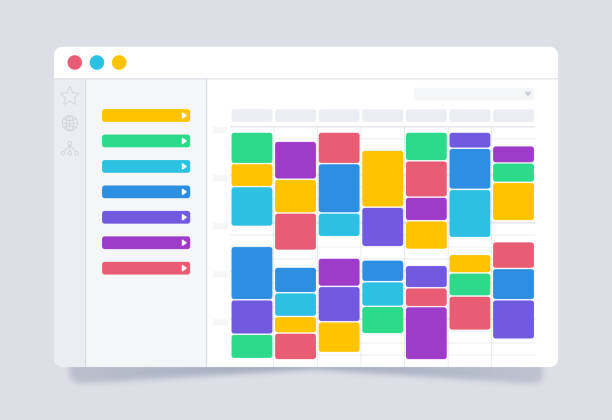
First up, it is essential to choose the right calendar planner for you to get going on planning your daily life. If you are tired of procrastinating, a calendar planner can help you regain your time management skills and enhance your productivity.
While selecting a calendar planner app, it is crucial to consider your preferences and needs. Your selected calendar planner app should bring more symmetry to your life. You must ensure it has all the essential features to help you organize your daily routine.
There are multiple calendar planners online, such as Week Plan, Asana, and Google Calendar, that you can use to straighten out your schedule. You can log in your details according to your preferences, and these planners help to generate deadline alerts and priority tags and allow app integration.
2. Setting Up Your Calendar Planner
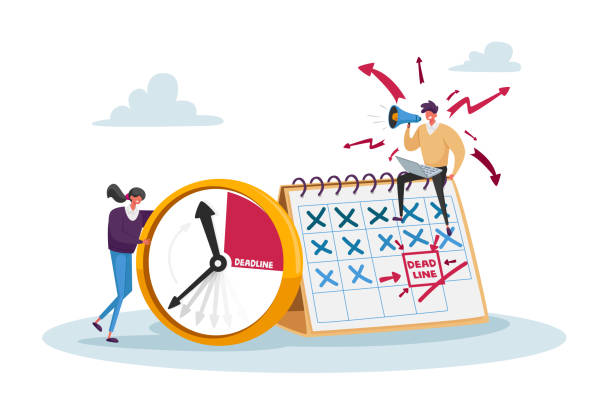
You need to set up your calendar planner in a manageable way for you in the long run. If you want to spend your time more productively, set your calendar planner accordingly.
You should put all your appointments, meetings, and deadlines in your calendar app, sync it across all your devices and follow your set calendar. This way, instead of using the “one size fits all” rule, you can introduce new strategies to your planner and possibly organize your tasks.
A great way to set up your calendar is to assign different colors to different tasks or events, making it easier to identify them on your calendar quickly. This visual cue will help you stay organized and maintain a balanced schedule.
Moreover, remember to include time for self-care, hobbies, and relaxation in your calendar planner. Balancing work and personal life is essential for maintaining productivity and well-being.
Most importantly, it is recommended that you periodically review your calendar to ensure it’s still aligned with your goals and priorities. Then, adjust as needed to stay on track and accommodate changes in your life.
3. Prioritizing Tasks to Maintain Balance
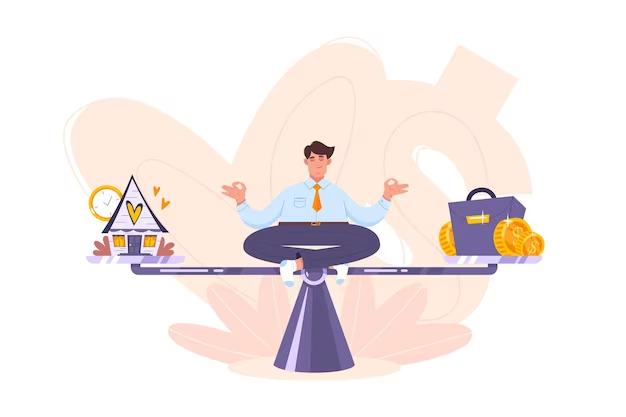
What’s more important than organizing your tasks? Prioritizing your tasks to maintain balance. It is imperative to ensure you only spend the required time on each task to reduce undue burden.
You can organize your timetable according to ease and set priority tags for your tasks. This way, you get a layout of what tasks should be done first and which are urgent. You can also set reminders concerning the urgency of your deadlines and meetings.
Your calendar planner will issue an alert when you are near the deadline and notify you if you have forgotten your tasks. Prioritizing also helps to give you a sense of discipline and mental peace. You can easily attain work-life balance through calendar planners by giving yourself all the required time and avoiding burnout.
4. Allocating Time for Each Task
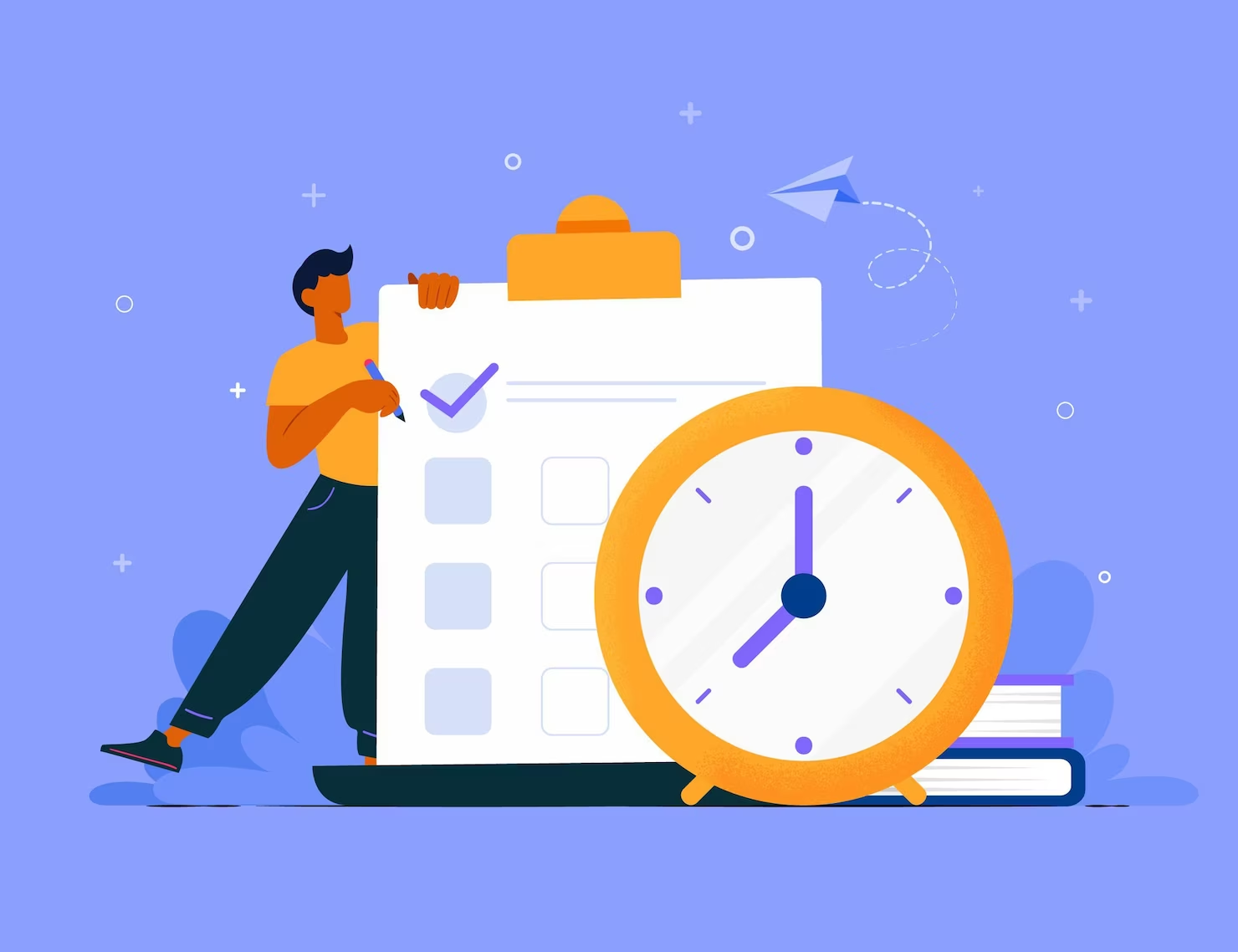
You must ensure you are allocating a specific time frame to each task. The fundamental reason for the delay in completing deadlines is inefficient time management. If you are not managing your time correctly, you can face multiple hurdles and disturb your work-life balance.
You can now take advantage of exciting features like time tracking and deadline management through a specially designed calendar planner. This enhances your chance of completing tasks on time instead of wasting it.
You can also track your progress by turning on the timer and pushing yourself toward your goals. When you waste your time by spending more than the required time on one task, you can face a lot of backlogs.
To reduce your workload and improve your work-life balance, you can set a timer for each task and complete it in the set time frame. This way, you can manage your day-to-day tasks without increasing your workload and monitor your progress efficiently.
5. Identifying Possible Distractions

In order to effectively plan your week with a calendar planner, it’s essential to first identify possible distractions that could impede your progress.
Start by reflecting on your daily routine and habits, and make a list of any activities or situations that may hinder your focus. By recognizing these distractions, you’ll be better prepared to address them and maintain a healthy work-life balance.
Next, consider how you might eliminate or reduce these distractions in your daily life. For instance, you might set specific times for social media use, designate a dedicated workspace, or establish boundaries with family and friends. Taking these proactive steps will help you create a more productive environment and allow your calendar planner to be an even more effective tool for organizing your week.
As you schedule your week using a calendar planner, allocate dedicated blocks of time for important tasks and activities, while also considering potential distractions. By doing so, you’ll create a realistic and achievable plan that accounts for the challenges you may face.
Lastly, don’t forget to reassess and adjust your plan as needed. It’s natural for distractions to evolve over time or for new ones to emerge. By regularly reviewing your calendar planner and updating it to accommodate changes in your life, you’ll continue to maintain control over your schedule and enjoy the benefits of a well-balanced work and personal life.
6. Set Up a Flexible Schedule
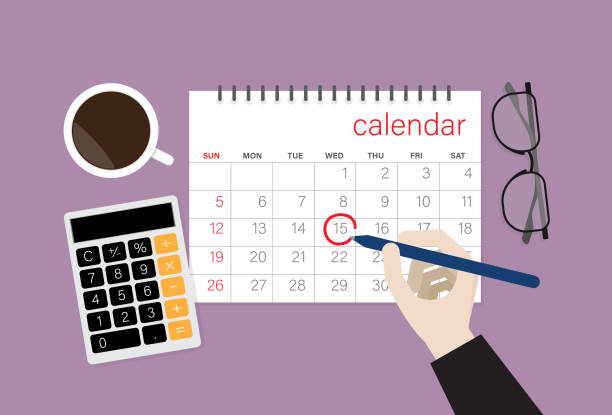
It is very important to find the right balance when it comes to determining your daily schedule. Your daily schedule should be a mixture of flexibility and routine. A routine is a set of tasks that must be done daily.
While flexibility is the concept of having tiny windows of relaxation in your daily routine, it is to ensure that if any work-related emergency surfaces, you have enough time to do it efficiently. Therefore, you should strike a balance between having an overly planned routine and a flexible schedule.
Every day is different and has its own challenges. To make sure you are ready for everything coming your way, you should have a flexible schedule. But to keep up your discipline, you must have a solid daily routine.
Using a calendar planner to ensure you have created a structured yet flexible schedule would be best. These planners are designed to enhance your task management and time allocation. You can now create a new routine every other week according to your work schedule and enhance your work-life balance.
7. Tackling Procrastination

One of the big challenges that disable your work-life balance is procrastination. It is very common and can happen unknowingly too.
Tackling procrastination is yet another challenging task for someone who is easily distracted. When people can’t keep up with their responsibilities, they need someone to remind them constantly. As technology advances, many roles have been replaced by softwares.
One such role is of reminders. You don’t have to rely on manual notebooks or sticky notes to ensure you keep up with your tasks. This way, using a calendar planner can avoid procrastination and improve task completion.
Moreover, using a calendar planner can significantly help with procrastination by providing structure and accountability. By scheduling tasks and assigning deadlines, you establish a clear plan to follow, reducing the likelihood of putting off tasks.
Lastly, tracking progress with a calendar planner can boost motivation and confidence. Seeing completed tasks and progress towards goals encourages consistency and discipline, making it easier to stay on track and avoid procrastination.
8. The Power of Breaks

It is important to always appreciate the power of breaks. Taking short breaks or intervals between tasks is equally important as time management.
To ensure your mind is not overstimulated, you must take short intervals between tedious tasks. These short breaks allow your brain to take a sigh of relief and think better for the next time.
You need to set a timer for 15-minute intervals after every hour or two hours of work while scheduling your tasks with a calendar planner. These breaks should not include using social media or watching any show. Rather, it could involve drinking water, strolling around your house, or closing your eyes to relax your brain.
You can use your calendar planner to schedule short breaks throughout your day. By planning your day and incorporating these self-care activities into your daily schedule, you can strike a smooth work-life balance in no time.
9. Balance Work and Personal Goals

Balancing work and personal goals can be a challenging task, but using a calendar planner can greatly assist in managing your time effectively. By diligently scheduling and prioritizing your tasks, you can create a well-rounded routine that caters to both your professional and personal aspirations.
While using a calendar planner, you should ensure your work and personal life balance is maintained by not intermingling both. Secondly, plan your day so that all your work and personal life goals are stacked properly without overloading your schedule.
Allocating specific time blocks for work and personal goals in your calendar planner helps maintain a clear separation between the two. This approach not only enhances your productivity but also ensures that you have dedicated time to focus on self-improvement and personal interests.
Also, remember to schedule time for relaxation and self-care in your calendar planner. By ensuring that you have designated periods for rest and rejuvenation, you can maintain a healthy work-life balance and avoid burnout.
Along with a calendar planner, you can also use online life planners to further improve your work-life balance.
10. The Art of Delegation

Delegating tasks with a calendar planner allows for better organization and time management. By assigning tasks to specific dates and times, you ensure that each task is given the necessary attention and resources.
Breaking down larger projects into smaller tasks makes delegation more manageable and efficient. By using a calendar planner, you can easily visualize deadlines and allocate tasks to yourself accordingly.
A calendar planner enables you to track the progress of delegated tasks, ensuring that everything stays on schedule. This visibility helps in identifying potential bottlenecks or delays, allowing for proactive adjustments to be made.
The TakeAway
Maintain a work-life balance and lead your life on your own terms by using a calendar planner. You can use an intuitive and user-friendly calendar planner for improving your daily time management. Features like time tracking, task prioritization, schedule planning, and calendar view presentation can surely help you with robust planning of your week.
With Week Plan, you can use the best calendar planner with up-to-date features for effective planning throughout the week. Explore our calendar planner today and achieve a better work-life balance by implementing the best planning practices.
Frequently Asked Questions (FAQs)
1. How can you prioritize tasks using a calendar planner?
To prioritize tasks in your professional life, use an online calendar planner to organize your entire week according to their importance and urgency. Assign priority tags to essential tasks and set reminders for both daily tasks and weekly tasks. This helps you create an effective work plan, ensuring that you focus on high-priority tasks first.
2. Can you allocate time effectively for each task in your planner?
To allocate time effectively, use features like time tracking and deadline management in your calendar planner. Set a specific time frame for each task and stay on track with the help of a timer. This helps you complete tasks on time and manage your day-to-day activities efficiently.
3. How can a calendar planner help you tackle procrastination?
A calendar planner helps you tackle procrastination in your entire life by providing structure, accountability, and motivation. By scheduling personal tasks and tracking progress, you establish a clear daily planning and weekly planning routine, reducing the likelihood of putting off tasks and boosting your motivation.
4. Is it possible to achieve a work-life balance using a calendar planner?
To achieve a work-life balance using a calendar planner, allocate specific time blocks for work and personal time, ensuring a clear separation between the two. Schedule time for relaxation, self-care, personal interests, and time for breaks. A well-rounded routine caters to both your professional and personal aspirations, helping you set achievable goals.
5. What is the importance of having a flexible schedule in my calendar planner?
Having a flexible schedule in your calendar planner is important for accommodating unexpected events or changes in your daily life while maintaining a sense of routine and discipline. A structured yet flexible schedule allows you to adapt to new challenges, maintain a balanced work-life equilibrium, and foster a productive workforce.

More Posts
How to Become as Productive as Elon Musk
Elon Musk puts a lot of effort into productivity. Still, running three engaging companies like Tesla, SpaceX, and the Quest is no easy task for an average human. This is what makes him...
7 Best Online Executive Weekly Planners for Business Owners
Navigating the complexities of owning and operating a business can be challenging. But with the right online executive weekly planner, the task becomes more manageable. Such a planner helps you organize your tasks,...
8 Strategies for Resource Capacity Planning
Resource capacity planning is key in today's fast-changing work world. It helps balance work with the resources we have. Gartner says it's vital to manage resources well to get the most value from...
Avoid Procrastination: 10 Lessons Learned from Daniel Walter
In today's fast world, distractions often stop us from reaching our goals, making it feel like a serious time management problem for many people. At work or in life, fighting against procrastination can...